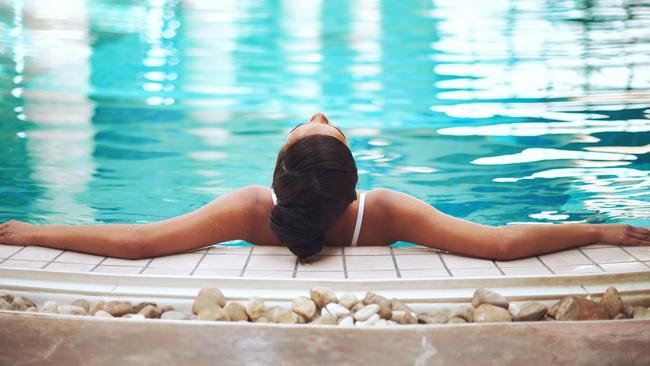Spending money on life’s little luxuries helps grow your wealth
Indulging yourself to a few luxuries shouldn’t be frowned upon if you want to be financially strong. Here’s why.
SmartDaily
Don't miss out on the headlines from SmartDaily. Followed categories will be added to My News.
It may feel counter-productive, but indulging yourself is an important part of good money management.
Spending every spare dollar on saving or investing can suck the enjoyment out of life and cause budgets and financial plans to fail, according to money and behaviour specialists.
However, indulgence shouldn’t mean overindulgence, so it pays to set a few strategies, they say.
Sort My Money founder David Rankin recommends setting aside “treat money” for yourself.
He says the dollar figure will depend on what you can afford, but as a guide think $50 a week for a single, $100 for a couple and $150 for a family.
“The mistake that a lot of people make is they think that budgeting and good money management is all about savings,” Rankin says.
“If they’re trying to save everything, there’s nothing left over for themselves,” he says.
WHY SMALL REWARDS WORK
“Building in indulgences for yourself is a great way to go because it makes your budget sustainable. You have to make it enjoyable.”
Set aside money for incidentals, meals, movies, date nights and clothing, and try to spend it, Rankin says.

“It’s important to not see that as potential savings – make sure you spend money on yourself.”
Habit Change Institute director Dr Gina Cleo says rewards are a powerful influencer of behaviour “because they help keep you motivated”.
Younger generations appear to have bought into this. Cleo says recent CommBank research surveyed 1000 people aged under 40 and found 90 per cent saw small indulgences as more important than long-term savings.
“Because they work hard and deserve rewards for their efforts, they need to enjoy themselves and buying small treats makes them happy,” she says.
SET BOUNDARIES
Cleo says overindulgence can happen if you don’t set firm boundaries.
“Find a realistic and achievable saving-spending balance, so you don’t feel too restricted with your budget but you’re also consistently hitting your goals,” she says.
Cleo recommends using a “spending” account to pay for your regular indulgences.
“Having this money in a separate account removes the temptation of dipping into your savings and overindulging,” she says.
“Rather than spending money on typical stress relievers like facials, which can be costly, create healthy sustainable habits like going for a 30-minute walk in a new, vibrant location to help clear your mind, or download a mindful meditation app to help you relax.”

SEPARATE SPENDING
A spokeswoman for personal finance app Pocketbook says people unsure how to split their saving and spending could consider dividing their wage into buckets: 30 per cent for rent or mortgage payments, 15 per cent for savings, 15 per cent for utilities, 25 per cent for groceries and travel, and 15 per cent for luxuries.
“People often forget that they work to enjoy life, and that includes indulging in life’s little luxuries every once in a while,” she says.
“Without giving yourself the financial freedom to splurge on a nice dinner out, a new phone or tablet, or a date night with your partner, you’re not really letting yourself enjoy the benefits of working hard.
“Budgeting isn’t about missing out – it’s about balance. Budgets exist to keep you in check so you can achieve your life aspirations and goals. It’s all about tailoring them to account for those things that help you enjoy life more.”
WHAT WE SPENT LAST YEAR
Pocketbook analysed its user base of more than 800,000 people to discover the little luxuries that Aussies spent money on in 2020:
• Food and beverage venues $2699 per person on average
• Consumer electronics $1410
• Clothing and fashion $1205
• Spa treatments, facials, personal care $1103
• Homewares and furniture $903
• Recreation, including go karting and kayaking, $352
• Jewellery and accessories $314
Source: Pocketbook



